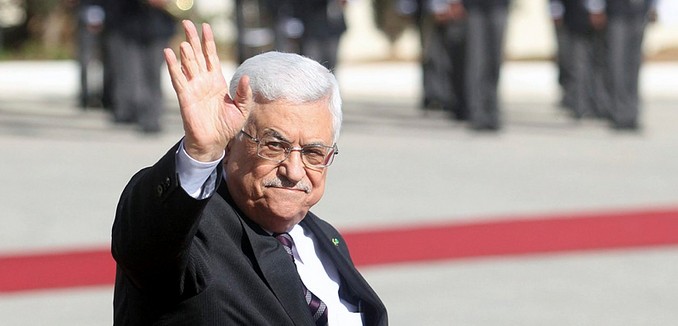A recent poll of Palestinians in the West Bank and Gaza Strip found that 95.5 percent believe that there is corruption the government of Palestinian Authority President Mahmoud Abbas, the Associated Press reported on Tuesday.
The survey of 1,200 people, conducted by the independent Palestinian firm AWRAD, also found that 82 percent of Gazans believe the same of Hamas, the terrorist group that rules the coastal enclave. “This is the highest rate I have ever seen in all the polls I have done,” Nader Said, who runs the polling agency, told the AP.
Public perceptions of endemic corruption among Palestinian elites are reinforced by the lavish lifestyles enjoyed by top PA officials, as well as the lack of transparency and accountability displayed by the Palestinian government, the AP reported.
In general, the lack of trust in Abbas is also linked to his failure to deliver statehood to the Palestinians despite being in office for a decade, more than twice as long as the 4-year term he was elected to in 2005.
While some experts think that opinions of PA corruption may be overblown, the AP noted that “secretiveness among Abbas and his advisers and a lack of responsiveness have fanned suspicions among the public that the political elite enjoy privileges and special deals at the expense of everyone else.”
One example of such secretiveness is the PA’s failure to submit its budget for required audits over the past four years. According to Aman, the Palestinian branch of anti-corruption watchdog Transparency International, the lack of audits means that there’s no oversight of how millions of dollars are spent every year. Muayad Afaneh, a researcher for Aman, said “there is a great lack of transparency in the budget, and this opens the door to everything negative,” including corruption.
While PA Prime Minister Rami Hamdallah has dismissed the allegations as “rumors,” pollster Said explained that this is part of the problem. “The leadership style of President Abbas is … perceived as elitist,” he explained. “He is surrounded by a very small group of people … He does not care about having a debate in the country on the issues.”
The Palestinian parliament, which provided some measure of oversight, has not functioned since Hamas’ 2007 military takeover of Gaza, leaving the PA and Hamas free “to [rule] by decree.” With no effective oversight, “[both] governments have rewarded party faithful with jobs and other perks.”
An example of this favoritism is a subsidized gated community on the outskirts of Ramallah called the “Diplomatic Compound,” where senior PA officials live in villas. AP described the community as “one of the symbols of what many Palestinians think is wrong with their leaders — that they are cut off from the people and award themselves special privileges.”
In a review of the little budget information available, the AP noted that of the PA’s “development” budget of $17.9 million for the first quarter of 2014, $9.4 million was budgeted for Abbas’ presidential plane and another $4.4 million was budgeted for “other” expenses. Afaneh, the corruption researcher, said that the plane, which is meant for communal expenses, didn’t belong in a development budget, and that designating so much money as “other” raises suspicions.
Senior PA officials, according to the AP, can be paid $10,000 a month, about ten times the salary of the average government worker.
The ongoing corruption in the PA and the lack of a Western response to it, combined with Abbas’ continuing power grabs, “[set] back the very legitimacy of the Palestinian national project,” Grant Rumley, an expert on Palestinian affairs at the Foundation for Defense of Democracies, wrote earlier this month.
[Photo: Issam Rimawi / Flash90 ]




